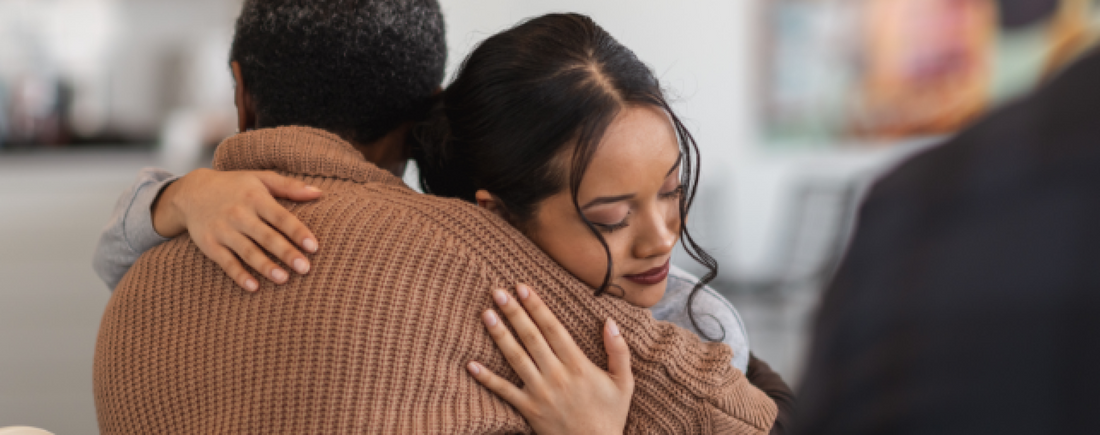Learning to forgive doesn't always come easy, and it's a patient and tender process. Many times, forgiveness can feel more like a weakness than an act of courage and strength.
Let's explore how elevating awareness around this powerful act can be a catalyst toward greater health—physically, mentally, and spiritually—while helping to transform your family, community, and country. Good health and nourishment aren't just about the vitamins and minerals you ingest; it's also who you are as a human being.
It's also important to acknowledge that forgiveness is not pardoning, excusing, forgetting, condoning, or even accepting bad behavior. It's a gift of freeing yourself from anger. As described in Psychology Today, forgiveness is ultimately about "freeing ourselves from feelings of anger, resentment, and victimization, and ending with clarity about our values."
In the book Forgiveness and Health, doctors Loren Toussaint and Everett L. Worthington show in their research that "forgiveness is linked to mental health outcomes such as reduced anxiety, depression and major psychiatric disorders, and fewer physical health symptoms and lower mortality rates." The connection between forgiveness and mental and physical health and well-being suggests stress relief as the primary factor connecting forgiveness and well-being.
Neda Gould, a clinical psychologist at Johns Hopkins University, explains, "Anger is a form of stress, and so when we hold on to anger it is as though we are turning on the body's stress response, or fight or flight response, chronically." You are probably aware of the impact of chronic stress and its adverse effects on the body. Amazingly, the act of forgiveness can help release the relational stressors that weigh you down, also helping to reduce blood pressure impacting your cardiovascular health.
Forgiveness also has benefits such as higher self-esteem, better moods, and happier relationships, according to the Greater Good Science Center.
Let's explore how elevating awareness around this powerful act can be a catalyst toward greater health—physically, mentally, and spiritually—while helping to transform your family, community, and country. Good health and nourishment aren't just about the vitamins and minerals you ingest; it's also who you are as a human being.
What Is Forgiveness?
In simple terms, forgiveness is a choice you make to give up anger or resentment, even while acknowledging that the wrongdoing happened. It's not so much behavior as it is an internal state of feeling and being. Forgiveness is choosing a higher path and moving through a process of letting go that's not so much about the other person, but your process. Taking it a step further, Bob Enright, Ph.D. at the University of Wisconsin, Madison, describes true forgiveness as offering something positive: "Empathy, compassion and an understanding towards the person who hurt you," making it both a virtue and a robust framework in positive psychology.It's also important to acknowledge that forgiveness is not pardoning, excusing, forgetting, condoning, or even accepting bad behavior. It's a gift of freeing yourself from anger. As described in Psychology Today, forgiveness is ultimately about "freeing ourselves from feelings of anger, resentment, and victimization, and ending with clarity about our values."
Why Forgive?
"There is an enormous physical burden to being hurt and disappointed," says Karen Swartz, M.D., director of the Mood Disorders Adult Consultation Clinic at The Johns Hopkins Hospital. And forgiving is an active process—like learning to ride a bicycle—it's a skill that takes time and gets better with practice. Studies are finding connections between forgiveness and physical, mental, and spiritual health and evidence that it plays a vital role in the health of families, communities, and nations.In the book Forgiveness and Health, doctors Loren Toussaint and Everett L. Worthington show in their research that "forgiveness is linked to mental health outcomes such as reduced anxiety, depression and major psychiatric disorders, and fewer physical health symptoms and lower mortality rates." The connection between forgiveness and mental and physical health and well-being suggests stress relief as the primary factor connecting forgiveness and well-being.
Neda Gould, a clinical psychologist at Johns Hopkins University, explains, "Anger is a form of stress, and so when we hold on to anger it is as though we are turning on the body's stress response, or fight or flight response, chronically." You are probably aware of the impact of chronic stress and its adverse effects on the body. Amazingly, the act of forgiveness can help release the relational stressors that weigh you down, also helping to reduce blood pressure impacting your cardiovascular health.
Forgiveness also has benefits such as higher self-esteem, better moods, and happier relationships, according to the Greater Good Science Center.
How to Forgive
When it comes to forgiveness, there's no silver bullet or quick fix to finding peace of mind. And everyone responds differently to various interventions that help people move through the forgiveness process, which is associated with positive outcomes. Learning to forgive is highly unique to each individual. Below are ways Dr. Schwartz suggests for integrating it into your daily life if one chooses:- Reflect and Remember: Recall the events, your reactions to them, and the feelings. How has hurt and anger impacted you?
- Empathize with the Other Person: Empathy can be described as an “imagine-other” perspective, which focuses on the experiences of another person, according to PsychCentral. It is a way of being present to someone and feeling into their experience.
- Forgive Deeply: Dr. Schwartz says people who forgive from a place of understanding and realize that no one is perfect can return to a normal relationship with the other person, even if that person never apologized.
- Let Go of Expectations: Saying you're sorry may not shift your affiliation with another person or bring forth an apology; however, if neither is expected, you won't be disappointed.
- Decide to Forgive: Dr. Schwartz explains when you choose to forgive, "Seal it with an action." If you're not able to communicate with the person who hurt you, journal, or write about your forgiveness. Try talking about it with a counselor or therapist or someone else in your life who you trust.
- Forgive Yourself: Cultivating self-forgiveness can be a challenge, and learning to be kind to yourself is another skill that requires practice and deserves your full, most-dedicated, and gentle attention. Your shortcomings are as much a part of your humanity as your individual strengths. Learning to practice self-kindness is an important and critical practice for your well-being. By committing to a self-kindness practice, "We can learn to become more constructive and effective in accepting and rectifying our errors - and, in the process, grow as individuals," according to Carole Pertofsky, MEd, director emerita of student wellness services at Stanford.






















